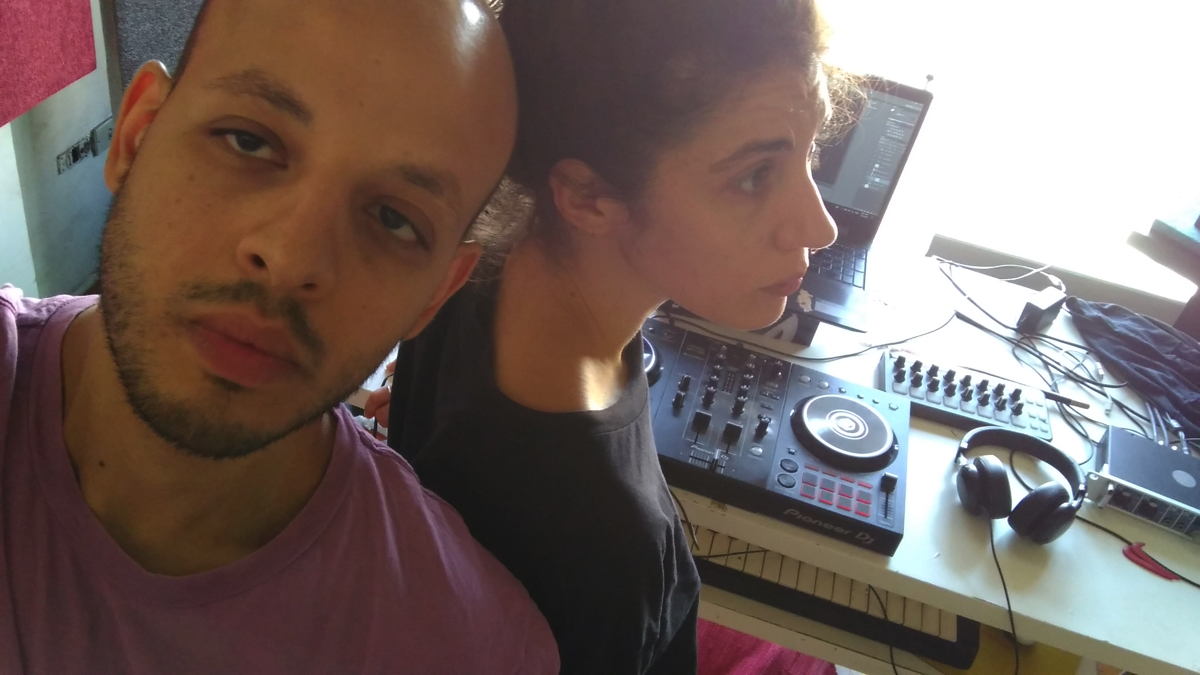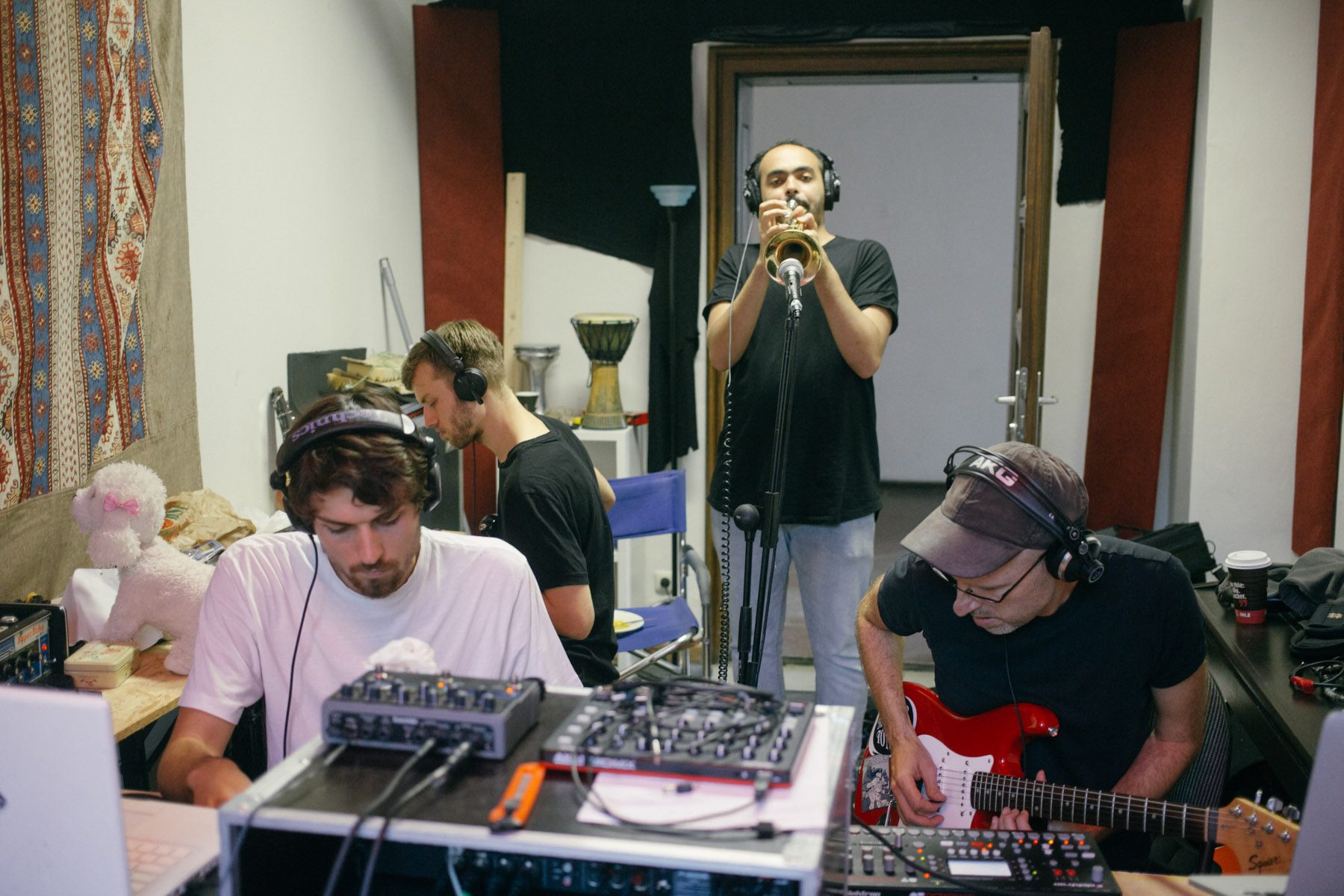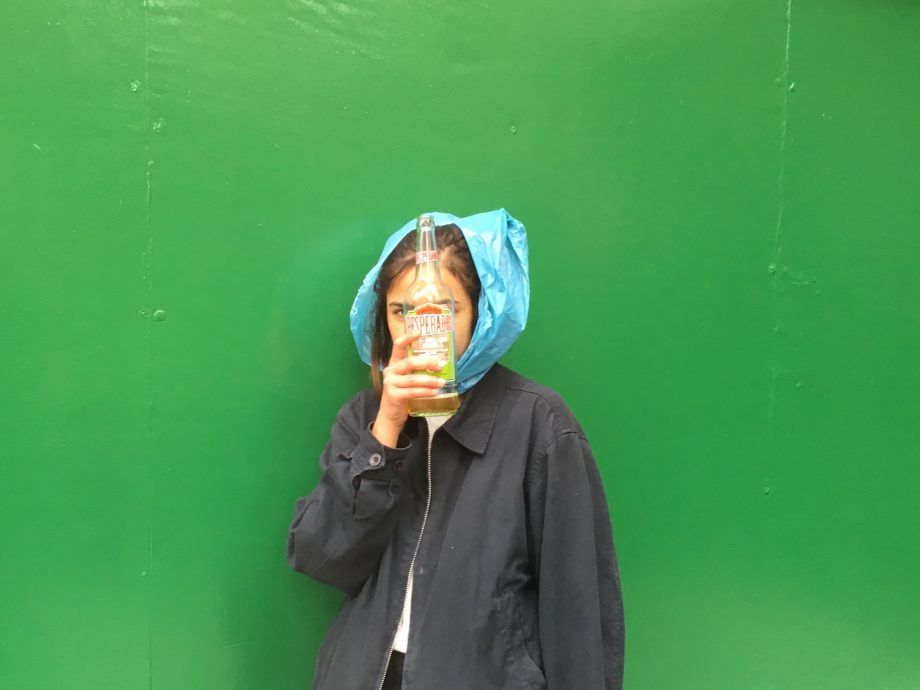Abdullah Miniawy – A fleeting glimpse into the world of dreams (interview)
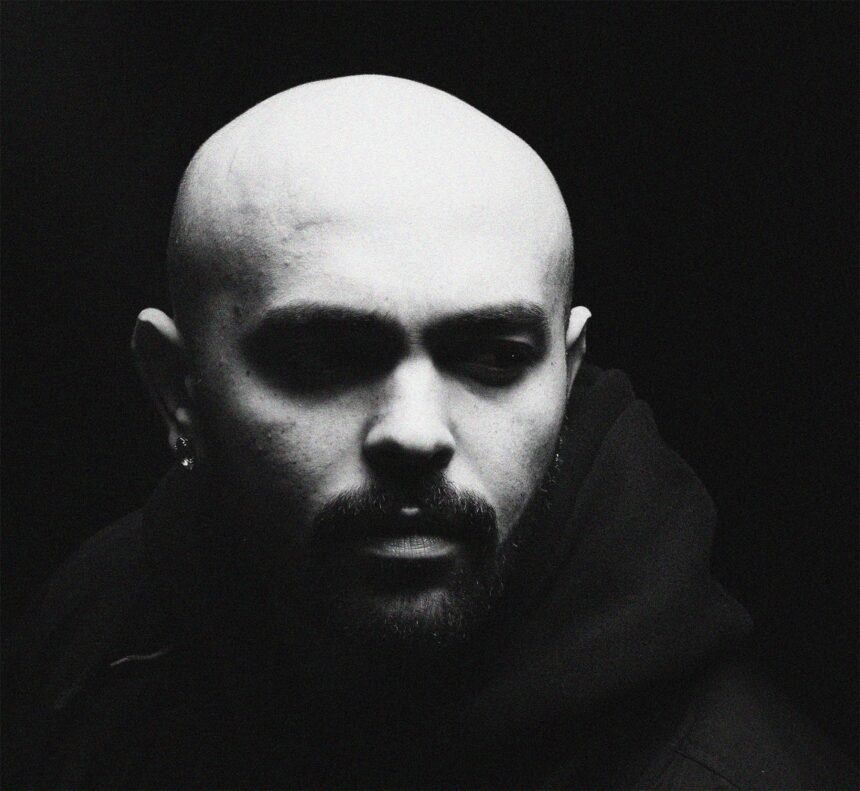
By Alexander Julin Mortensen
Over the last 10 years, the Saudi-Arabic, Paris-based artist Abdullah Miniawy has become a unique and internationally well-known figure in experimental and electronic music. While he was already an acknowledged actor and writer before then, it was his musical endeavour as a singer and composer which made many, myself included, aware of his artistic practice.
Miniawy’s singing, which is mostly in Arabic, can be characterised as haunting and cathartic. There’s a – at least to the common Western ear – theatrical element to the way he sings, an undeniable pathos which is allowed to outfold as much as you could possibly imagine. Listening to Miniawy sing is like hearing someone let you in on their most intimate secret without any reservations or like a siren calling for your utmost attention, an almost hypnotising experience. While Miniawy’s music might be deemed demanding by some, as soon as you give in to his emotionally dense songs, the atmosphere they create is sure to remain for long after the music has stopped.
That Miniawy is a unique artist in the contemporary landscape of electronic and experimental music seems even more evident when taking some of the artists he’s collaborated with and label he’s been released on into account. In addition to working as part of the group Le Cri du Caire, he has also collaborated with the DJs and producers HVAD and Simo Cell as well as released multiple EP’s and an album together with the electronic group Carl Gari.
In this context, Miniawy’s collaborative music surely feels like the odd man out; it could not seem much more detached from a club-context, with his intense and at times almost uncanny singing, accompanied by experimental soundscapes. Still, there’s also something fitting about situating many of his releases in this musical landscape: Both labels cater for the curious listeners, the ones open for new sonic experiences and eventually challenging or expanding their conception of what defines contemporary music and its current aesthetics in these contexts. And Miniawy surely did this to me as well as many other people.
In this interview, Miniawy speaks on topics such as the influence of his Egyptian background on his music, singing in Arabic for an non-Arabic audience, his view on the relation between his music and politics – and what to expect from tonight’s concert in Copenhagen with Le Cri du Caire.
P/A: Personally, I mostly know you for your musical output as a singer and composer. However, you’re also an acclaimed actor and writer. How do your different practices influence one another?
Abdullah Miniawy: “Art is like a fleeting glimpse into the world of dreams, but it’s not exactly the same. To be an artist is to possess the ability to transform these dreams and raw ideas into various forms of expression, such as poetry, films, photography, and choreography. Observing the world with a keen eye and deep contemplation can be incredibly inspiring. I discovered this creative power within me years ago, and it has become an integral part of who I am. This perspective has greatly enriched my thinking.
One significant moment in my artistic journey was when I was invited to perform in Ala Eddine Slim’s movie “Tlamess”, which premiered at the 2019 Cannes Film Festival, where I played the lead role. I embraced my natural self for this opportunity. I shed all pretences and masks to fully immerse myself in the character. Today, as a performer on stage, I can be more authentic and relish every moment shared with the audience. This authenticity extends to every facet of my artistic practice; each discipline nourishes the other.
“I began to see the world as a layered masterpiece, with countless assets stacked upon one another and intricate subdivisions within every creation.”
Abdullah Miniawy
Around two years ago, I delved deeply into learning video game development and 3D work. My initial intention was to translate my poetic thoughts into visual imagery. However, during this journey, I found myself marvelling at the intricacies of the world, much like a child exploring the wonders of creation. I began to see the world as a layered masterpiece, with countless assets stacked upon one another and intricate subdivisions within every creation. I even became fascinated by the concept of particle systems. This experience rekindled the poet within me and allowed me to view the world with fresh, virgin eyes.
I would encourage anyone to explore various facets of themselves and to embrace the richness of life by becoming many personas, each contributing to their unique journey of self-discovery.”
P/A: Having grown up and spent a huge part of your life in Saudi Arabia and Egypt, you’ve since moved to France. Do you feel some kind of affiliation with the experimental music and art scenes in any of these countries? Or do you regard your practice as somehow distinct from what generally defines these scenes at the moment?
AM: “In Hinduism, children are regarded as the artists of life, especially those who have not yet received education. They possess an innate ability to break boundaries, experiment fearlessly, and build with unstoppable laughter. I’ve always been one of these lifelong child artists. My journey began at the age of 8 when I first started writing, and at 12, I travelled into the world of software and creation. Back then, I had no formal knowledge of music theory, but I was driven by an insatiable need to create. My creative process may appear unconventional or even fragmented, but to me, it embodies the essence of originality. This is what I define as art.”
“I value the ability to express my thoughts and words without the constraints of censorship.”
Abdullah Miniawy
P/A: You both compose and perform as a solo artist as well as in collaboration with Carl Gari, HVAD and as part of the group Le Cri du Caire. Do you have a different approach to writing songs as a solo artist as opposed to your collaborative projects?
AM: “Indeed, I cherish my freedom dearly. I value the ability to express my thoughts and words without the constraints of censorship. This is evident in my solo project, which stands as a testament to fearlessness.”
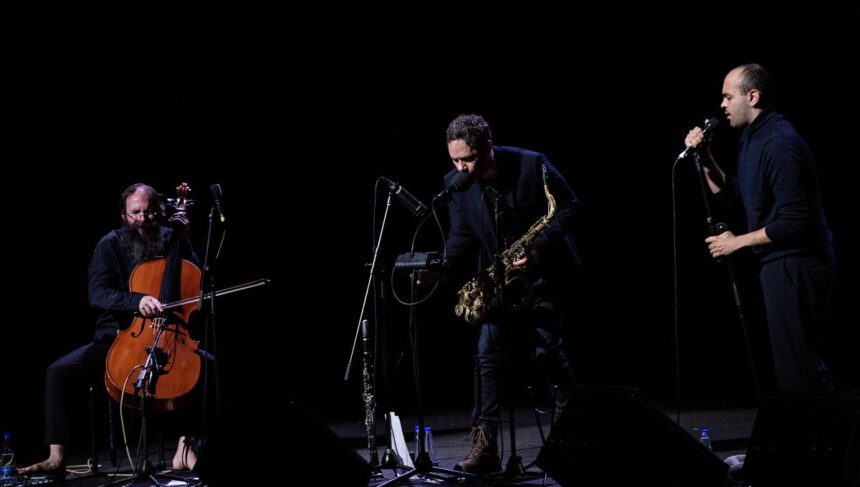
“My curiosity lies in exploring history rather than reviving traditional art.”
Abdullah Miniawy
P/A: To me, your music manages to sound both contemporary and traditional at one and the same time. What’s your thoughts on the importance of traditions or musical heritage in the context of contemporary music?
AM: “Traditional art serves as a historical record of a nation’s past. My curiosity lies in exploring history rather than reviving traditional art. My heart is drawn to the rich musical traditions of the Gulf, Africa, and Europe, including Baroque and opera.”
P/A: How would you say that your Egyptian background more precisely has influenced the lyrical themes and musical aesthetics of your music?
AM: “The revolution left a scar on me, filling me with inspiration. However, a significant portion of my life was spent in isolation, homeschooling in Saudi Arabia until I reached the age of 17. During that time, I learned to listen to my heart and escape into my dreams. Both my heart and my dreams became constant companions, offering me valuable gifts and life lessons along the way.”
Abdullah Miniawy
“The more I perform, the more I enrich my songs with new vocabulary, contributing to our collective dictionary.”
P/A: Despite the fact that you sing in Arabic, your music has gained quite a following in many western countries and surely also among many people who’re not familiar with the language. Would you say that this language barrier poses a potential challenge to understanding your music, or do you regard your lyrics as somehow secondary to the role of your singing or compositions?
AM: “In Egypt, my lyrics took centre stage, becoming the focal point of my artistic expression. However, when you find yourself in new and diverse audiences or embark on fresh experiences, such as relocating to Europe, you naturally evolve in your communication. I create music that resonates with the emotions of the people I connect with. The more I perform, the more I enrich my songs with new vocabulary, contributing to our collective dictionary. In my solo work, I even explore singing in different languages. Who knows, perhaps one day I’ll release a pop album in French! I thrive on the constant challenge of pushing my artistic boundaries.”
P/A: How do you regard the relation between your musical practice and politics or societal issues? Is art a political matter or rather a free space from it?
AM: “In the grand image of things, everything holds a political dimension, even when we appear to be discussing more common themes like love, sex or drugs.”
“When I perform, my aim is for people to cleanse their souls, to allow their emotions to flow freely.“
Abdullah Miniawy
P/A: In general, is there something in your music which is particularly important for you to communicate to your audience – an aspect that you hope that they will take from your music? Or are you unconcerned with what impression it leaves on your listeners?
AM: “My purpose is to bring people together, to light the warmth in your heart. My message revolves around spreading empathy and providing a safe space for tears. When I perform, my aim is for people to cleanse their souls, to allow their emotions to flow freely.”
P/A: In recent years, you’ve performed in Denmark on a number of occasions both as a solo artist as well as with Le Cri du Caire. What’s your thoughts on the Danish or Scandinavian live scene and performing here?
AM: “I love connecting with audiences everywhere I go. Each culture is unique, and it’s fascinating to see how people express and respond to emotions differently. Denmark holds a special place in my heart; it’s one of the best places to connect with fans, especially after a concert. The warmth and openness of the people there make those moments unforgettable.”
P/A: What can that audience expect from your concert tonight at Sankt Johannes’ Church?
AM: “My audience can expect an escape from the everyday—away from social media, daily routines, and life’s pressures. Through my performance, I guide them on a journey of self-discovery. I hope they feel the depth and beauty of Classical Arabic language and textures. Most importantly, they can expect my complete dedication to creating a truly extraordinary and transformative experience.”
Info: This article is a revised version of an interview by the same author, originally brought in a publication for Ekko Festival in 2023. Read more about Ekko Festival, which takes place on November 1-3 this year, here.
Le Cri du Caire is playing tonight in Sankt Johannes’ Church in Copenhagen. The concert is presented by Final Descent and Union – read our interview (in Danish) with Final Descent here.

